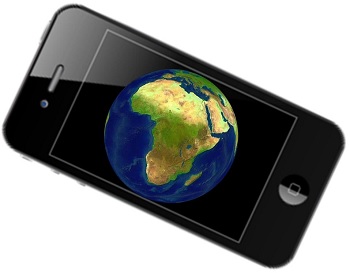Denny |
November 21, 2014
A new survey has revealed that these device users are becoming annoyed with the advertising they are receiving.
The research firm, Ifop, from France, has released the results of a study that they conducted in South Africa and Algeria, which revealed that consumers in those countries are not appreciating the types of mobile marketing that they are receiving from brands and companies.
They discovered that 80 percent of consumers in those countries were annoyed by unsolicited messages they received.
This reveals that the mobile marketing strategies being used by companies and brands targeting smartphone using consumers in Africa may not be nearly as effective as is hoped. Instead of engaging consumers, they are managing to annoy them, instead. Moreover, the research also showed that the same percentage of consumers could be won back by those brands and companies if they change their efforts and implement practices that will enhance the consumer engagement that is promoted by their ads.
This mobile marketing study was conducted by Ifop on behalf of Gemalto using face to face interviews.
 The mobile advertising research involved the participation of adults over the age of 18 years. There were 800 respondents in Nigeria and South Africa. The purpose of the study was to better determine the opinions of consumers with regards to the types of marketing to which they have been exposed over their smartphones. It sought to pinpoint and examine the negative perceptions that had been formed about this type of advertising in those two parts of Africa. It was conducted back in July 2014.
The mobile advertising research involved the participation of adults over the age of 18 years. There were 800 respondents in Nigeria and South Africa. The purpose of the study was to better determine the opinions of consumers with regards to the types of marketing to which they have been exposed over their smartphones. It sought to pinpoint and examine the negative perceptions that had been formed about this type of advertising in those two parts of Africa. It was conducted back in July 2014.
The study showed that Nigerian and South African consumers had similar desires when it comes to mobile ads and promotions. Consumers in both of those nations have shown that they would prefer to have some control over the types and natures of the ads that they receive over their smartphones and tablets.
It showed that 83 percent of the participants in the study believe that mobile marketing should be an opt-in basis, only. Moreover, 90 percent would want to be able to identify the company or brand from which they receive these messages and communications.
The AR technology is converting bus shelters into an exciting mobile gaming experience.
Microsoft has been making a number of large and important moves into mobile technology and now it has combined the experience with video games by bringing augmented reality into out of home advertising locations such as bus shelters.
The company has outfitted three bush shelters with AR experiences to promote its Sunset Overdrive video game.
The bus stops are located in London, England; San Francisco, U.S.A.; and Melbourne, Australia. These shelters have each been outfitted with special augmented reality technology that brings the viewer right into the digital environment of the video game. From a distance, these ads look as though they are traditional digital screens. However, when viewed more closely, the AR technology makes it appear as though the figures that are moving around are actually going to leap right out of the screen.
These augmented reality ads are supported by the Empowering Media agency, and Clear Channel Outdoor.
 The displays were created by Grand Visual, which is a company that creates digital out of home advertising experiences. This is not the first time that the company has worked with augmented reality and has incorporated it into its advertising. It is a company that was behind a number of high profile outdoor advertising experiences using AR, motion graphics, and color recognition, such as those from Pepsi, Heineken, and Tropicana.
The displays were created by Grand Visual, which is a company that creates digital out of home advertising experiences. This is not the first time that the company has worked with augmented reality and has incorporated it into its advertising. It is a company that was behind a number of high profile outdoor advertising experiences using AR, motion graphics, and color recognition, such as those from Pepsi, Heineken, and Tropicana.
The Xbox One video game being marketed through this effort, Sunset Overdrive, was created by Insomniac Games and is meant to be the first installment of a franchise of shooting games that will place the player in a fast action situation in which they will battle mutant attackers. This innovative form of advertising makes it clear that Microsoft is serious about its efforts to stand out within a video gaming marketplace that is considered to be quite heavily saturated.
While it is likely that this augmented reality advertising technique will draw lots of attention for the video game, this campaign is truly interesting for the impact that it is likely to have in upcoming outdoor ad display trends.
 The mobile advertising research involved the participation of adults over the age of 18 years. There were 800 respondents in Nigeria and South Africa. The purpose of the study was to better determine the opinions of consumers with regards to the types of marketing to which they have been exposed over their smartphones. It sought to pinpoint and examine the negative perceptions that had been formed about this type of advertising in those two parts of Africa. It was conducted back in July 2014.
The mobile advertising research involved the participation of adults over the age of 18 years. There were 800 respondents in Nigeria and South Africa. The purpose of the study was to better determine the opinions of consumers with regards to the types of marketing to which they have been exposed over their smartphones. It sought to pinpoint and examine the negative perceptions that had been formed about this type of advertising in those two parts of Africa. It was conducted back in July 2014.
 The displays were created by Grand Visual, which is a company that creates digital out of home
The displays were created by Grand Visual, which is a company that creates digital out of home 